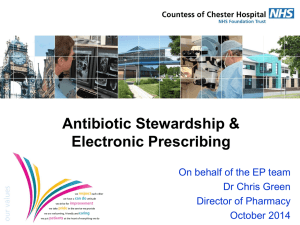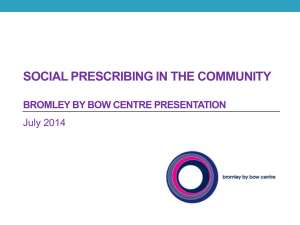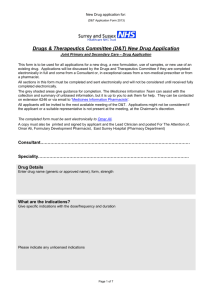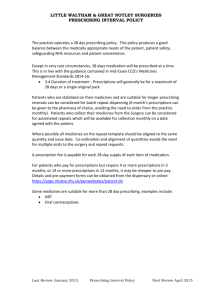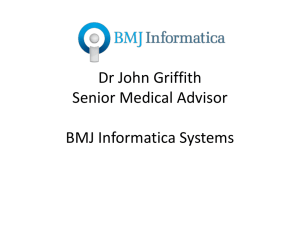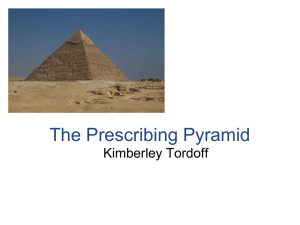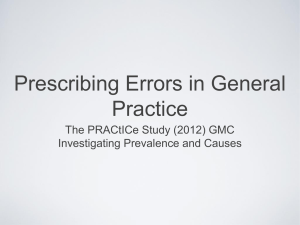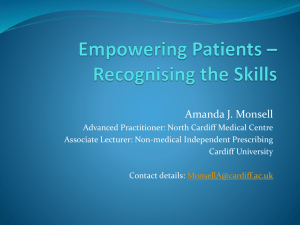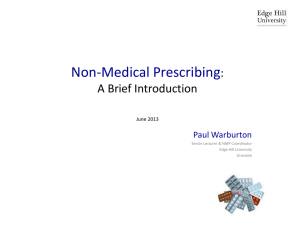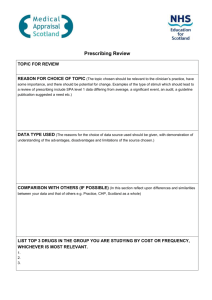FAQ Non Medical Prescribing
advertisement
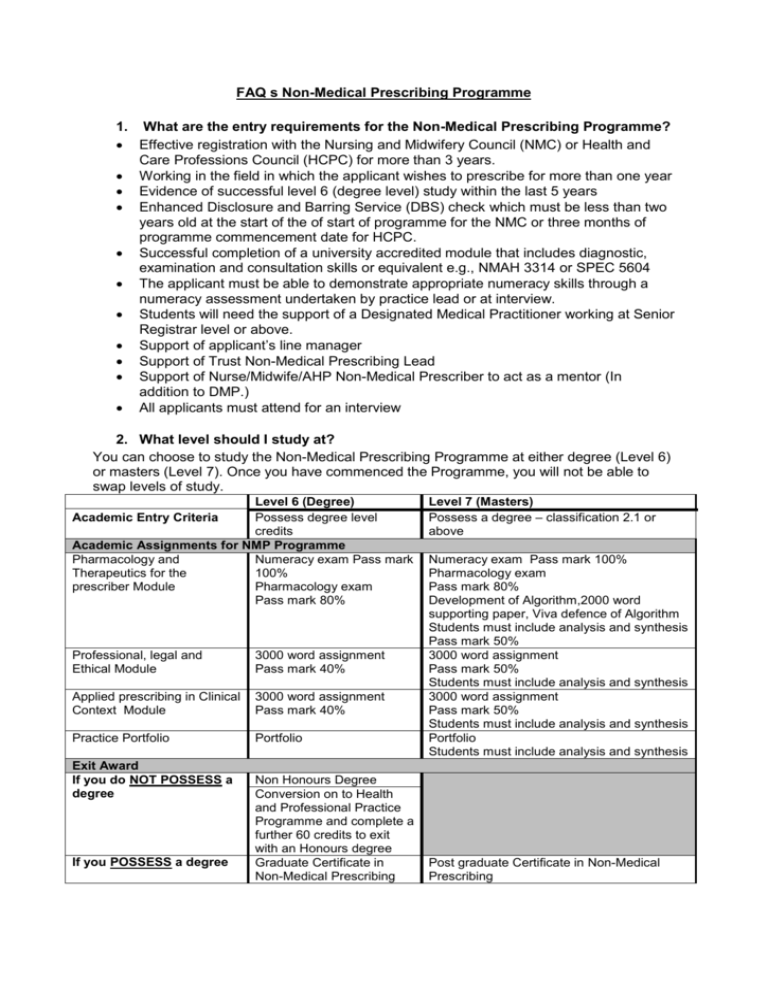
FAQ s Non-Medical Prescribing Programme 1. What are the entry requirements for the Non-Medical Prescribing Programme? Effective registration with the Nursing and Midwifery Council (NMC) or Health and Care Professions Council (HCPC) for more than 3 years. Working in the field in which the applicant wishes to prescribe for more than one year Evidence of successful level 6 (degree level) study within the last 5 years Enhanced Disclosure and Barring Service (DBS) check which must be less than two years old at the start of the of start of programme for the NMC or three months of programme commencement date for HCPC. Successful completion of a university accredited module that includes diagnostic, examination and consultation skills or equivalent e.g., NMAH 3314 or SPEC 5604 The applicant must be able to demonstrate appropriate numeracy skills through a numeracy assessment undertaken by practice lead or at interview. Students will need the support of a Designated Medical Practitioner working at Senior Registrar level or above. Support of applicant’s line manager Support of Trust Non-Medical Prescribing Lead Support of Nurse/Midwife/AHP Non-Medical Prescriber to act as a mentor (In addition to DMP.) All applicants must attend for an interview 2. What level should I study at? You can choose to study the Non-Medical Prescribing Programme at either degree (Level 6) or masters (Level 7). Once you have commenced the Programme, you will not be able to swap levels of study. Level 6 (Degree) Possess degree level credits Academic Assignments for NMP Programme Pharmacology and Numeracy exam Pass mark Therapeutics for the 100% prescriber Module Pharmacology exam Pass mark 80% Academic Entry Criteria Professional, legal and Ethical Module 3000 word assignment Pass mark 40% Applied prescribing in Clinical Context Module 3000 word assignment Pass mark 40% Practice Portfolio Portfolio Exit Award If you do NOT POSSESS a degree If you POSSESS a degree Non Honours Degree Conversion on to Health and Professional Practice Programme and complete a further 60 credits to exit with an Honours degree Graduate Certificate in Non-Medical Prescribing Level 7 (Masters) Possess a degree – classification 2.1 or above Numeracy exam Pass mark 100% Pharmacology exam Pass mark 80% Development of Algorithm,2000 word supporting paper, Viva defence of Algorithm Students must include analysis and synthesis Pass mark 50% 3000 word assignment Pass mark 50% Students must include analysis and synthesis 3000 word assignment Pass mark 50% Students must include analysis and synthesis Portfolio Students must include analysis and synthesis Post graduate Certificate in Non-Medical Prescribing 3. How much study time will I need to set aside? In addition to the 26 days attendance required at University, you will be required to undertake 12 days (78 hours) of practice based learning observing prescribing decisions. You will also need to set aside between 6-8 hours per week to consolidate the information you have been given in class and to complete assignments. 4. How can I prepare for this Programme? Ensure that you are confident in undertaking drugs calculations Revise anatomy and physiology of liver, kidneys and cells. Obtain a pharmacology book aimed at Pre-registration-students Nurses. A good starter text is Barber & Robertson Essentials of Pharmacology for Nurses (2012) (2nd Edition). This will give you a good basic knowledge of pharmacology on which you can build once you start the Programme Complete the work book that will be sent to you after your interview 5. I am an Allied Health Professional who wishes to become a prescriber what are the options for me? Physiotherapists & Podiatrists can study for their Independent and Supplementary Prescribing award with the nurses and midwives. For Radiographers the recordable qualification is supplementary prescriber only. Pharmacists undertake a different programme in the School of Pharmacy Please note we do not run the conversion course for physiotherapists and podiatrists who were initially supplementary prescribers who wish to study for independent prescribing status. There are a few Universities around the country that offer this; the list is on the HCPC website. 6. I am working in a specialist field and want to undertake a prescribing programme that focuses on my speciality, is this possible? You cannot undertake a bespoke prescribing course for your speciality. The NonMedical Prescribing Programme will give you a good grounding in generic pharmacology principles and therapeutics. You, along with your DMP must adapt and explore the specific issues relevant to your specialist field. 7. How do I apply for the Non-Medical Prescribing Programme Check that you meet the entry criteria. If you do, you will need to complete the on line application form for either B23079 Level 7 or B70042 for Level 6. You apply for the programme, not individual modules. Once your application form has been received by Learning Beyond Registration (LBR), your manager/Trusts Non-Medical Prescribing Lead will receive an email in which they will need to confirm that they will support your application before LBR will proceed with your application. Once this confirmation of support from your manager/Trusts Non-Medical Prescribing Lead has been received, you will then receive an email with a number of appendices specific to the Non-medical prescribing programme. You must complete these and return them to LBR ASAP Once LBR have received your appendices will be reviewed by the Non-Medical Prescribing Programme leader, and if complete you will be invited to attend for an interview. Please be aware that it can take some time for this process to be completed, and you are therefore advised to start the application process as soon as possible. .You are advised to keep a copy of the appendices.
